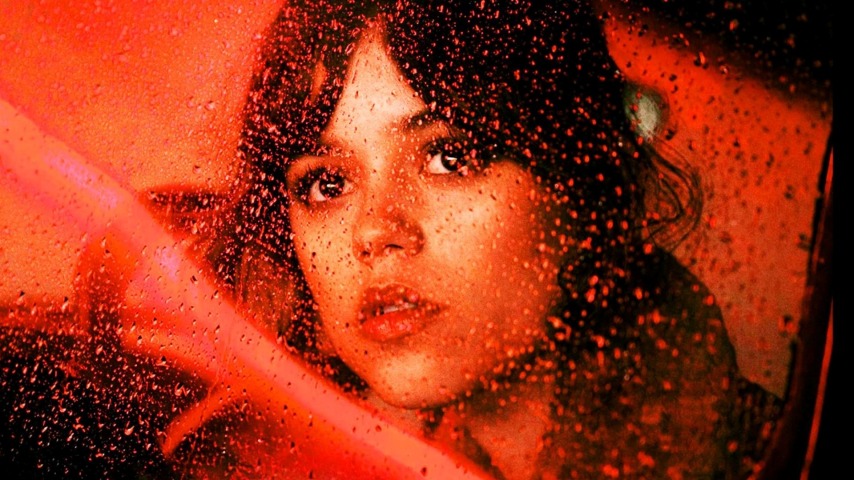Even as a music video, Hurry Up Tomorrow would be excruciating
How dare you waste Jenna Ortega's time, and ours?!
Photo: Lionsgate
Anyone fretting that Hurry Up Tomorrow, a movie co-written by and starring the popular musician The Weeknd, would exist only as a thin pretense to promote the artist’s new musical project can set their mind at ease. Hurry Up Tomorrow promotes nothing. It plays a bit like Abel Tesfaye, the glum-looking man with an ebulliently emo take on new wave, structured his story as a visual album, then didn’t make the album. (Confusingly, the album appears to have been made and released anyway.) Some older folks may have seen the standalone term “visual” used in place of “music video,” as in “the visual for the new Weeknd single,” and wondered what, if anything, the difference is. This is it. Hurry Up Tomorrow is not a movie, nor a feature-length music video, nor a regular-length music video. It is a visual. It is a thing you can see; that much, is accomplished.
In it, Tesfaye plays a fictional version of himself who seems sadder than the real thing, though who are we to say? A happier man would not make Hurry Up Tomorrow. At the beginning of the movie, in the downtime from his demanding world tour, he obsessively listens to a despondent voicemail from a woman he has evidently wronged. She calls him a bad person. She sounds convincing. He looks very sad. On second thought, though, maybe the tour is not that demanding There’s a lot of preparation, and a doctor’s visit to attend to his imperiled vocal cords, but he doesn’t appear to be under any obligation to actually perform at his concerts. One is explicitly cut off; if there are others—the movie’s faux-dreamlike tone and glacial pace cause severe time-loss—none of their performances are shown in full.
As The Weeknd fails to finish any songs, the movie also follows a young woman who the credits refer to as Anima (Jenna Ortega), in case there is any doubt over whether she represents the irrational side of the psyche. She tearfully douses a house in gasoline, sets it ablaze, and goes off in search of more gasoline. In that sense, it is easy to identify with Anima. Eventually, she attends a Weeknd concert, and locks eyes with the singer, who seems to immediately fall in love, or at least fascination. She gets backstage even faster than Cooper from Trap and slams into Tesfaye while eluding security; he promptly whisks her away. They share a blissful evening, away from pop-star obligations, doing things that look particularly dreamy and gorgeous when captured on celluloid: walking around carnivals, going to warmly lit bars that serve drinks with sparklers, sitting close together in the backseat of a car as the shining (perhaps even blinding) lights of the city pass by its windows.
 Keep scrolling for more great stories.
Keep scrolling for more great stories.
